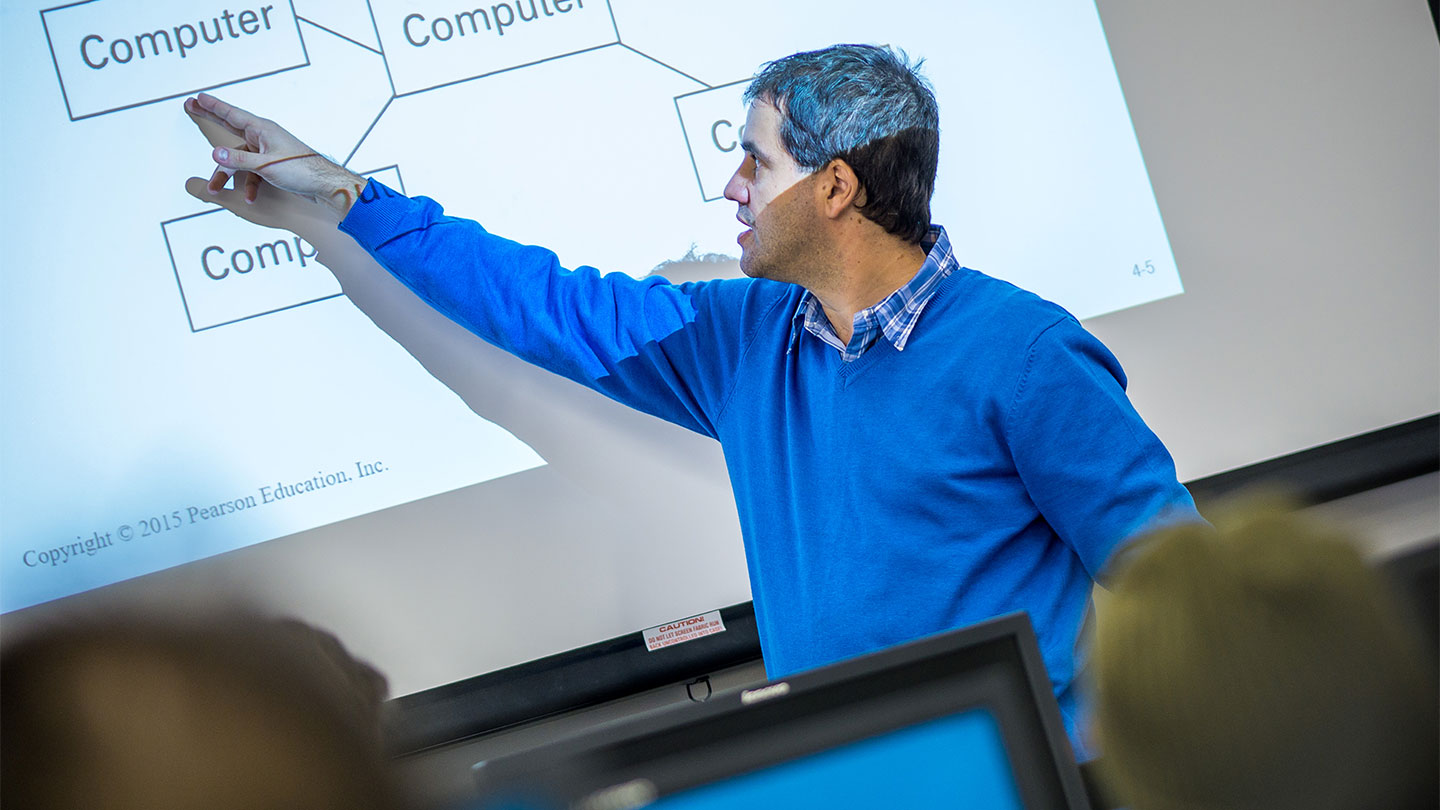
Snapshots
A conversation with Computer Science Professor Stefan Robila
Computer Science Professor Stefan Robila, director of the Computational Sensing Laboratory, recently completed a three-year stint as program director at the National Science Foundation (NSF)’s Office of Advanced Cyberinfrastructure (OAC) that collaborates with other NSF divisions to develop innovative research infrastructures that open new frontiers for discovery.The Foundation is the premier independent federal science agency and is tasked with identifying and funding projects that advance the country’s health, prosperity and welfare, and secure its defense. To do so it relies on experts like Robila to serve either as reviewers or as temporary or permanent program directors. Robila gave Montclair magazine a glimpse into the NSF and how his time there will serve to help Montclair State students.
Montclair: How would you compare your life as a researcher and professor to your time at the NSF?
Robila: As faculty I contribute to the creation of new degrees and develop new research directions; at NSF I participated in the design of programs that will shape future research and education. OAC’s mission is to enable the research, development and provisioning of cyberinfrastructure that enable all NSF-supported science. The connection between this cyberinfrastructure and the science it serves is growing stronger, generating discoveries that no longer fit within specific domain boundaries. One such discovery led to development of AI-driven computational processes that explore time-dependent changes in molecular systems that have been used to investigate the SARS-Cov-2 infection mechanisms.
Montclair: What work at the Foundation was the most rewarding?
Robila: I am proud that I was part of the team that formulated the first ever cyberinfrastructure research program at NSF. As a researcher at Montclair State, I served as a reviewer of proposals; at NSF I managed the full proposal pipeline, from ensuring compliance and synthesizing research results to making recommendations for funding. My research expertise and writing skills came in handy as every recommendation had to be well justified and placed in the context of value to the program and the NSF. My work covered a variety of programs such as the Major Research Instrumentation, core research, and software and data cyberinfrastructure.
Only two months after arriving at NSF, I joined the group managing the Cyberinfrastructure for Sustained Scientific Innovation (CSSI) program, an initiative with deep roots in OAC, and unique within the Foundation for its focus to support science-driven data and software cyberinfrastructure development. As program lead, I tracked and managed hundreds of proposals for projects that could someday potentially change the way we live.
Montclair: What insight did your time at the NSF OAC give you for your work at Montclair State?
Robila: As Montclair State faculty, I am inspired by our students every day, and I am amazed by their drive to succeed. NSF actively works to ensure that tomorrow’s scientific community will be inclusive and diverse, something that is important to Montclair State as well. Shortly after arriving at the NSF, a group of colleagues and I developed an opportunity that encourages submissions focused on expansion of inclusivity in computing research. We continued evolving this into a full funding program focused on fostering computer science research at Minority Serving Institutions with its first deadline in April 2021.
As a faculty advisor, I often engage students in discussions about how graduate degrees help them further their professional development and broaden the career landscape. Keeping graduate students in mind while at the NSF, I became more familiar with opportunities available to support them. For example, I served as director for panels reviewing applications for the Graduate Research Fellowship Program, one of NSF’s longest-running programs that provides stipends and tuition reimbursement for graduate students.
–Laura Griffin